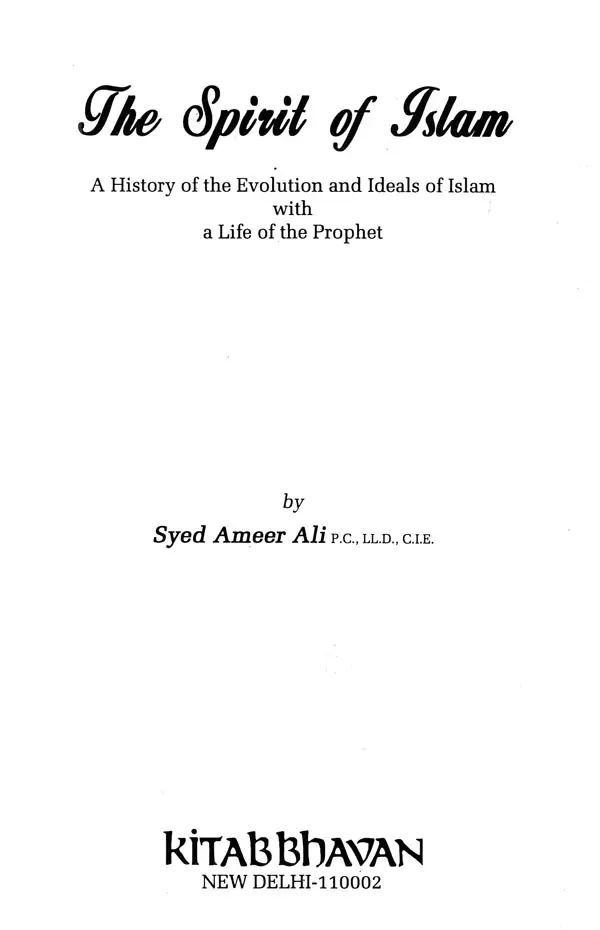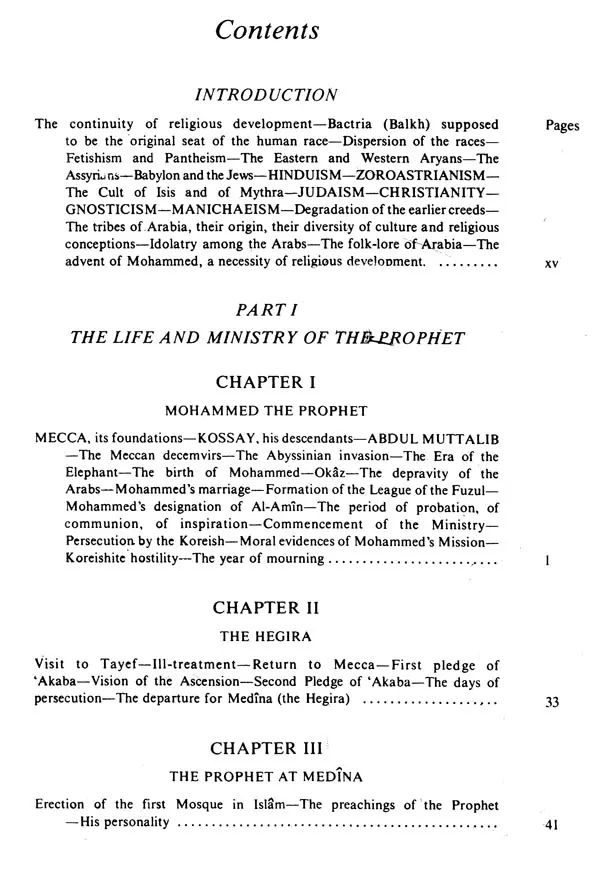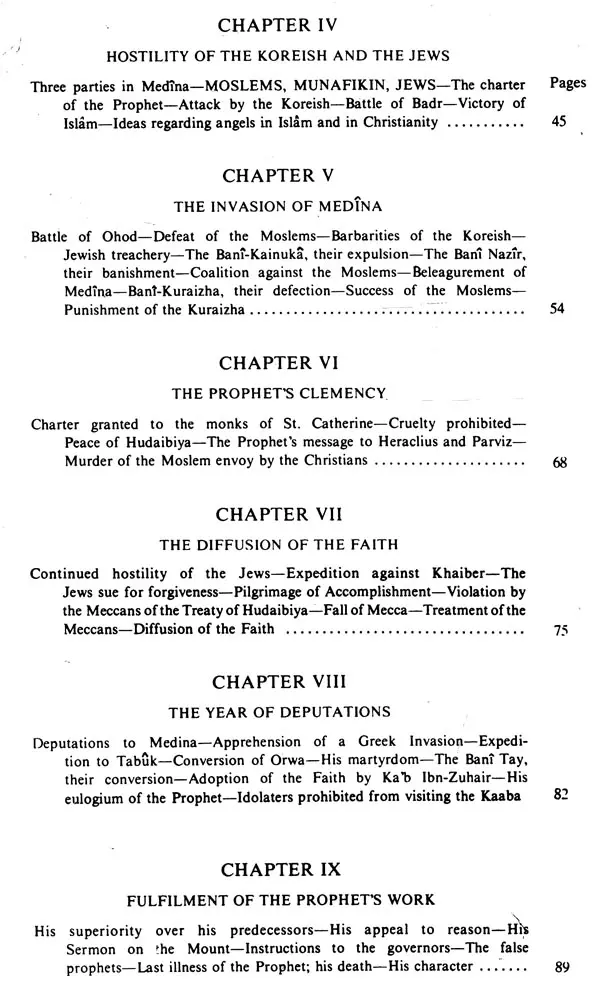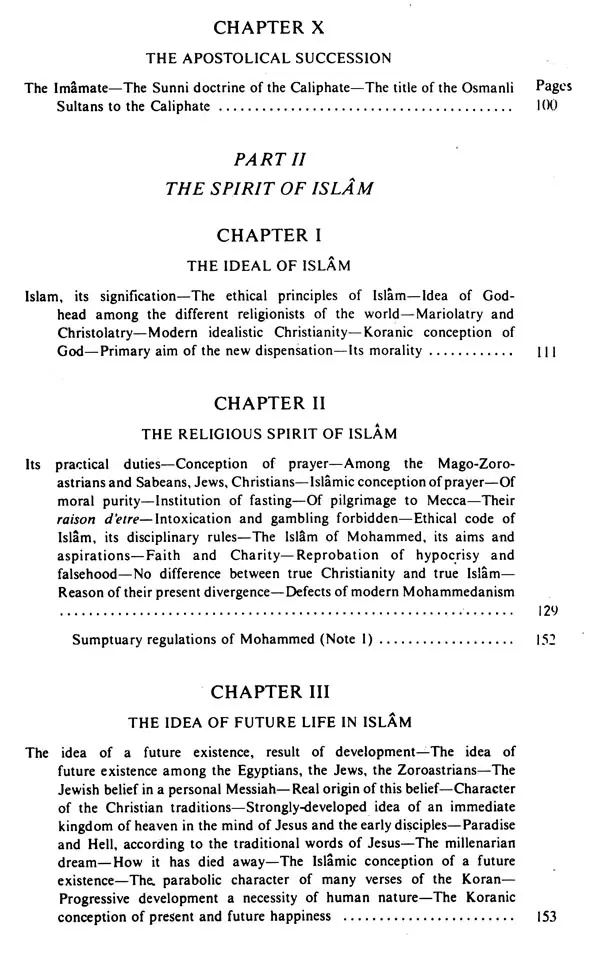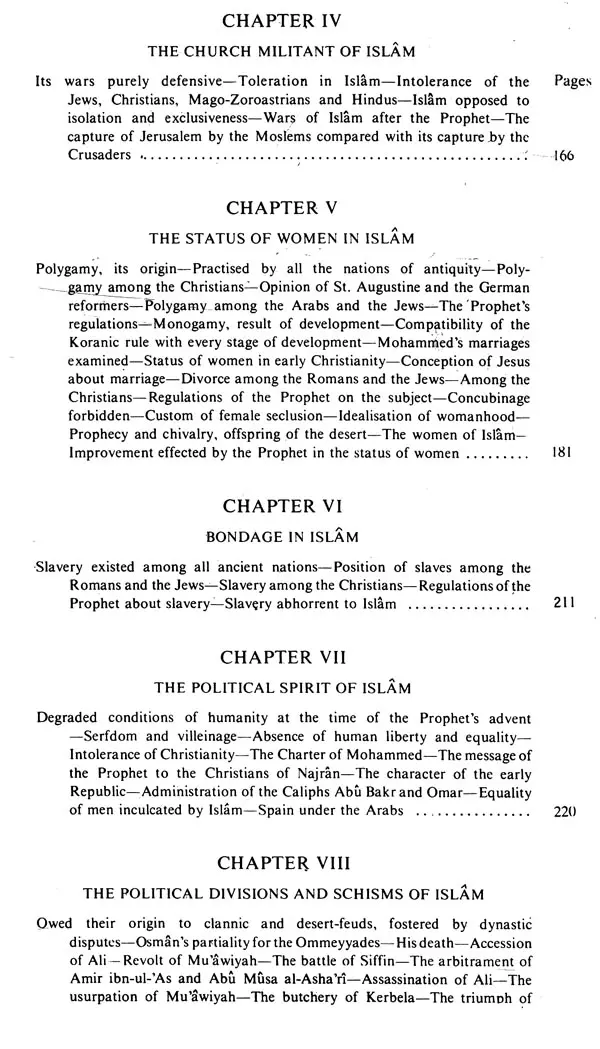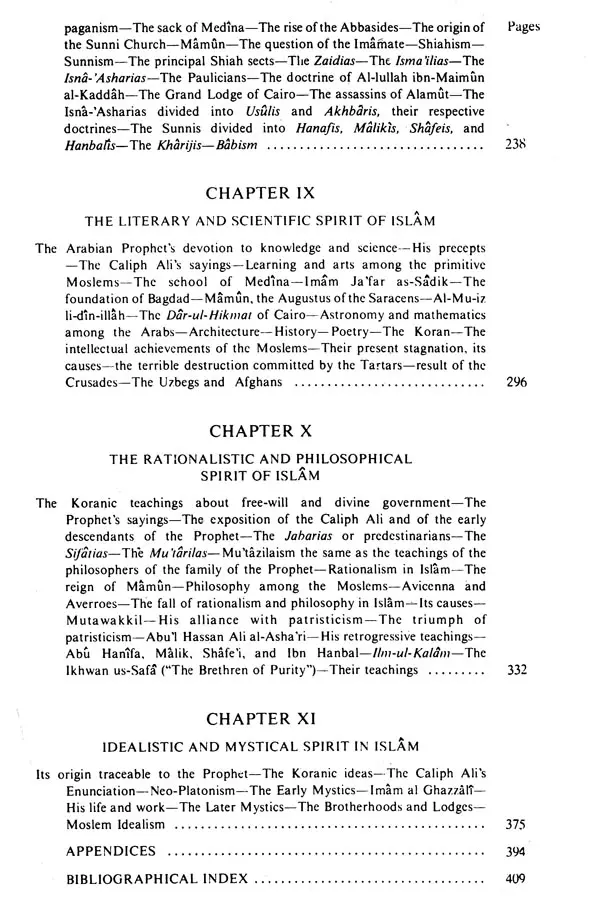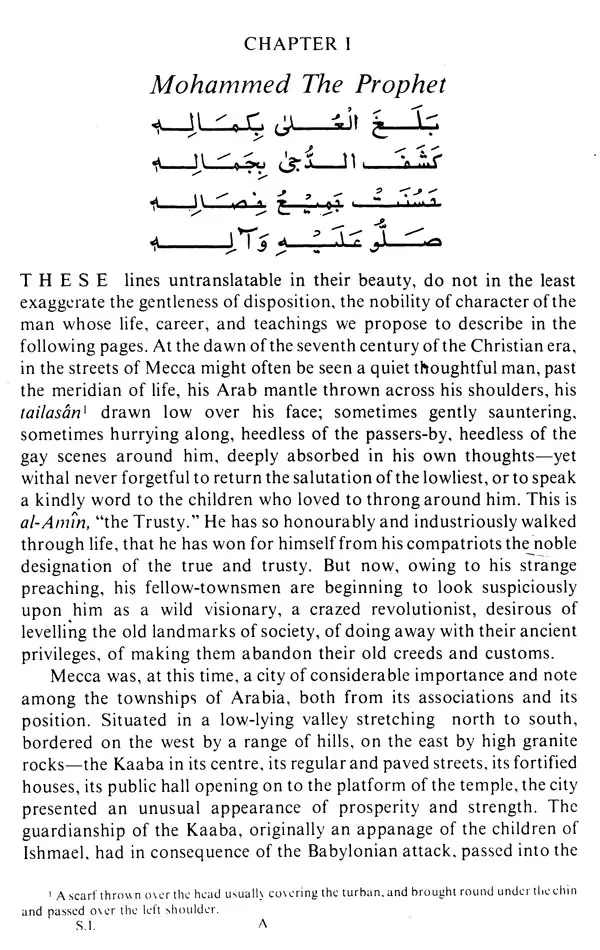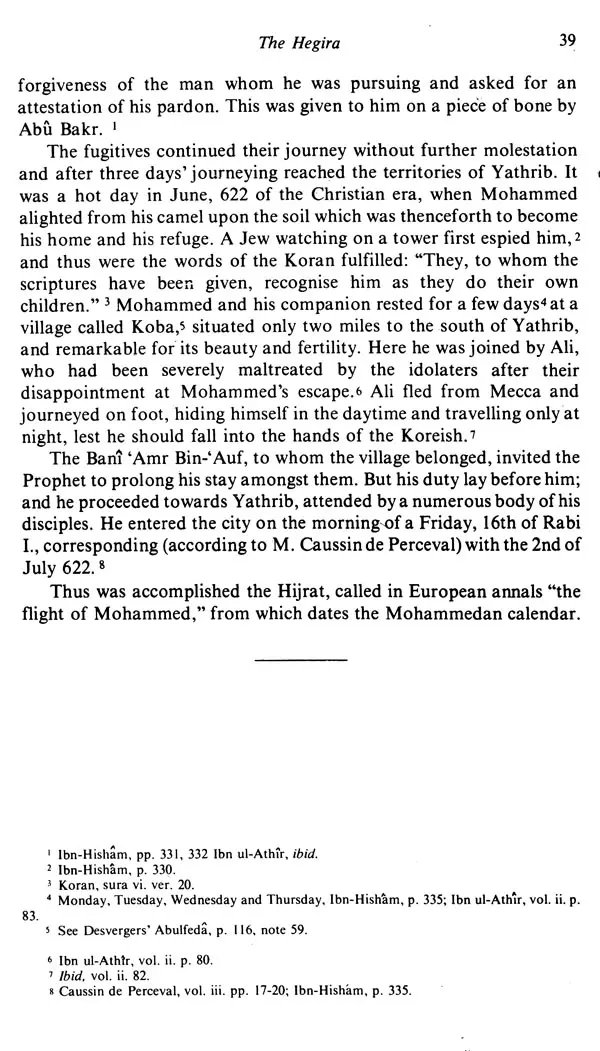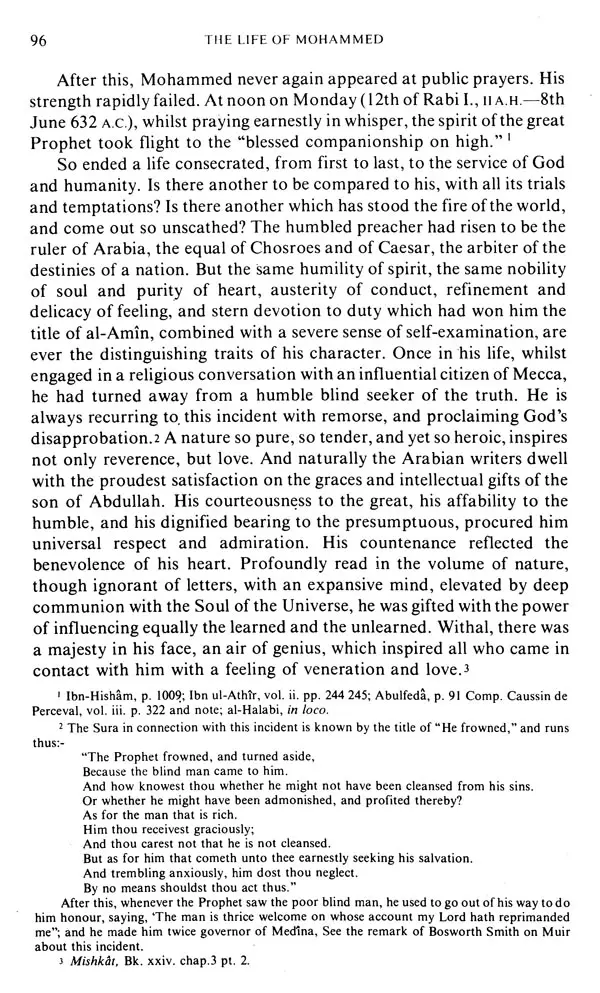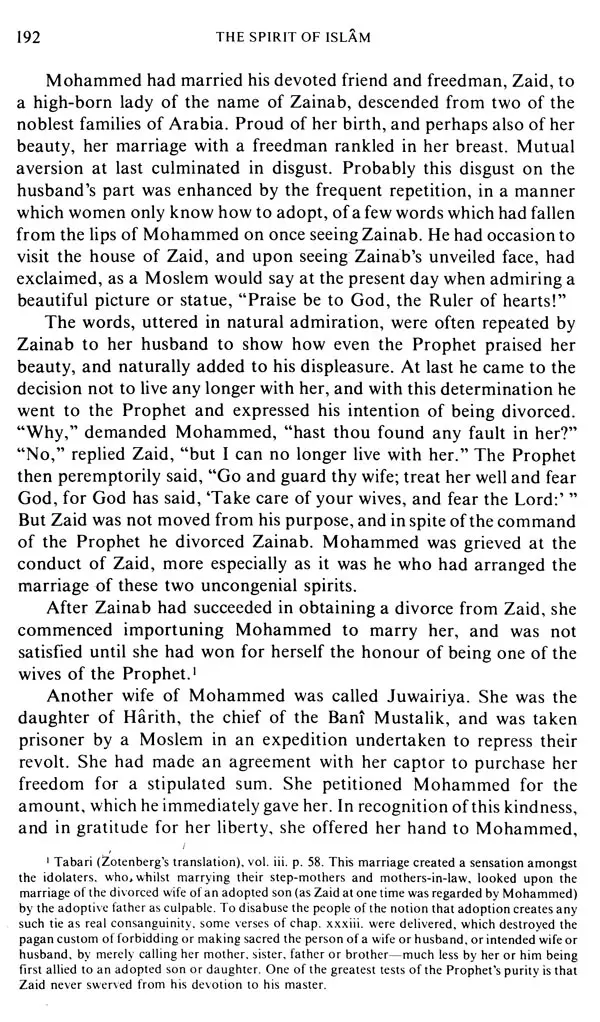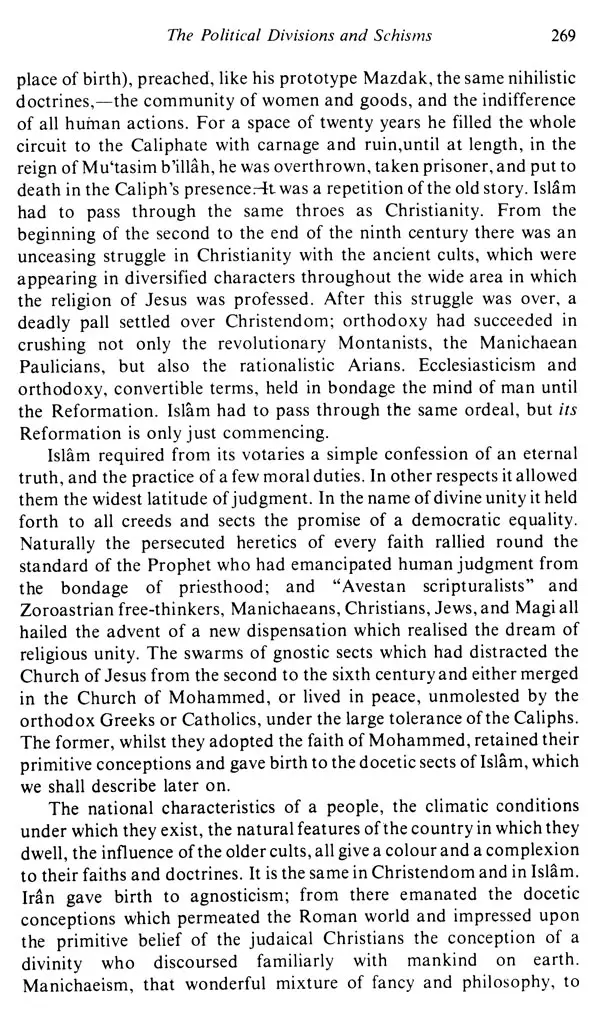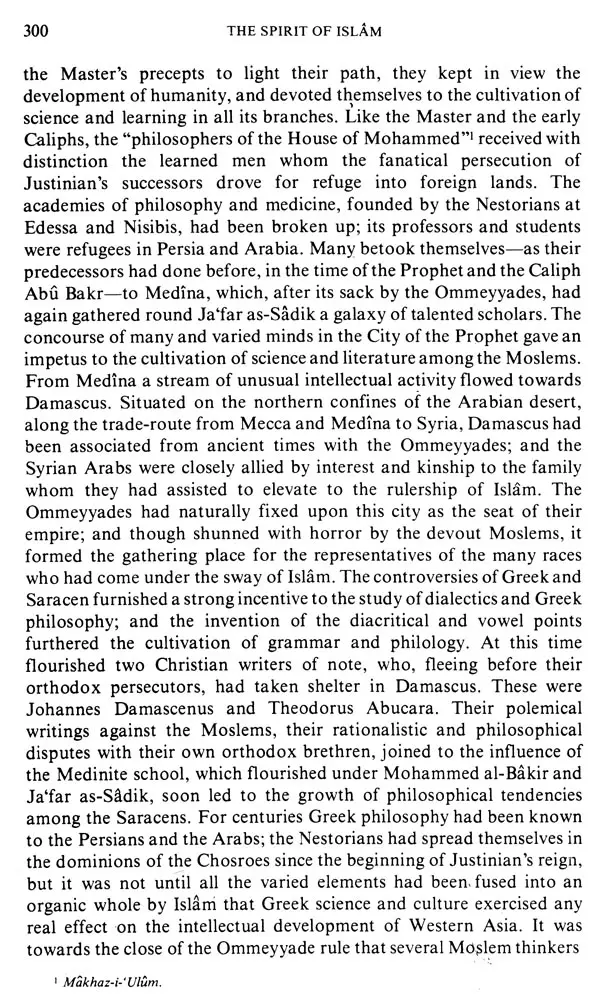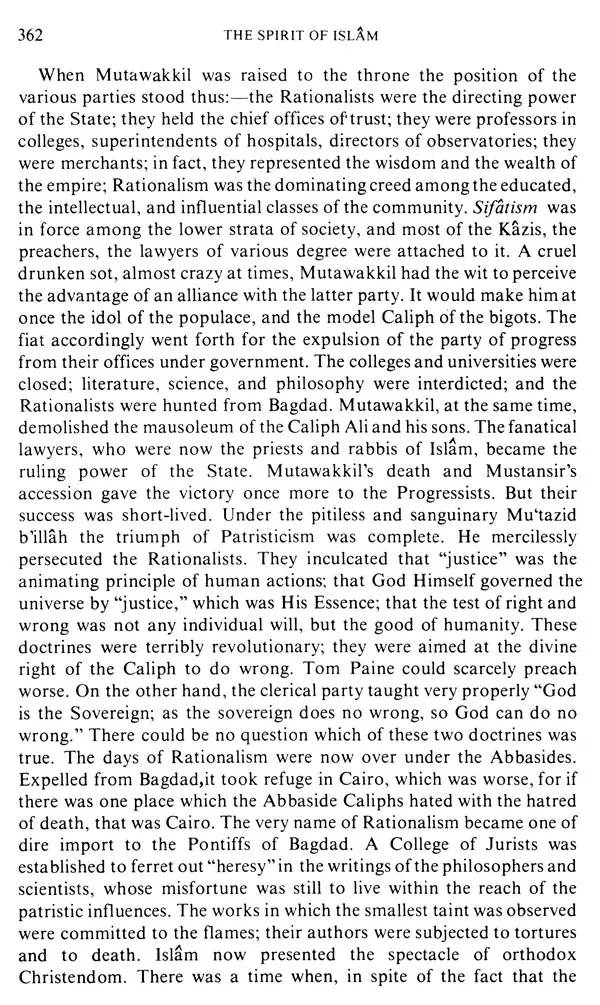
The Spirit of Islam (A History of the Evolution and Ideals of Islam with a Life of the Prophet)
Book Specification
| Item Code: | UBE292 |
| Author: | Syed Ameer Ali |
| Publisher: | KITAB BHAVAN |
| Language: | English |
| Edition: | 2022 |
| ISBN: | 9788171512379 |
| Pages: | 469 |
| Cover: | HARDCOVER |
| Other Details | 10.00 X 6.50 inch |
| Weight | 930 gm |
Book Description
Within a few centuries after the death of Mohammad in A.D. 632 the Islamic creed had spread across half the world and obtained a permanent and powerful hold over millions of people. In this book the author traces the origins and the history of this religion. He recognize, almost for the first time in a book in the English language, its extraordinary effects in uplifting humanity and its true place in the history of religions.
IN the following pages I have attempted to give the history of the evolution of Islam as a world-religion; of its rapid spread and the remarkable hold it obtained over the conscience and minds of millions of people within a short space of time. The impulse it gave to the intellectual development of the human race is generally recognized. But its great work in the uplifting of humanity is either ignored or not appreciated; nor are its rationale, its ideals and its aspirations properly understood. It has been my endeavour in the survey of Islam to elucidate its true place in the history of religions. The review of its rationale and ideals, however feeble, may be of help to wanderers in quest of a constructive faith to steady the human mind after the strain of the recent cataclysm; it is also hoped that to those who follow the Faith of Islam it may be of assistance in the understanding and exposition of the foundations of their convictions.
My outline of the life and ministry of the Prophet is based on the Sirat-ur-Rasûl of Ibn Hisham, who died in 213 AH (828-9 A.C.), barely two hundred years after the death of the Prophet, supplemented by, among other works, Ibn ul-Âthîr's monumental history, the Chronicles of Tabari, the Insân ul-'Uyûn of al-Halabi (commonly known as Sirat- ul-Halabia). Two new chapters have been added in this edition: one on the Imamate ("The Apostolical Succession"), the other on "The Idealistic and Mystical Spirit in Islâm." Considerable new matter has also been included in the Introduction and Chapter X., Part II. I take this opportunity of expressing my gratitude to my esteemed friend, Professor E.G. Browne of Cambridge, one of our foremost Orientalists, for his most valuable criticisms on the last chapter, and to Mr. Mohammed Iqbal, Government of India Research Scholar at Cambridge, for his careful revision of the proofs and the compilation of the Index. I also desire to express my acknowledgments to Mr. Abdul Qayum Mâlik for transcribing for the printers the Arabic quotations for the new chapters and verifying the Koranic references,, and to the publishers for their unvarying courtesy and patience over a difficult publication.
THE continuity of religious progress among mankind is a subject of enthralling interest to the student of humanity. The gradual awakening of the human mind to the recognition of a Personality, of a Supreme Will overshadowing the universe; the travails through which individuals and races have passed before they arrived at the conception of an Universal Soul pervading, regulating, and guiding all existence- furnish lessons of the deepest import. The process by which humanity has been lifted from the adoration of material objects to the worship of God, has often been retarded. Masses of mankind and individuals have broken away from the stream of progress, have listened to the promptings of their own desires, have given way to the cravings of their own hearts; they have gone back to the worship of their passions. symbolised in the idols of their infancy. But though unheard, the voice of God has always sounded the call to truth, and when the time has arrived His servants have risen to proclaim the duties of man to himself and to his Creator. These men have been the veritable "messengers of Heaven." They came among their people as the children of their time; they represented the burning aspirations of the human soul for truth, purity, and justice. Each was an embodiment of the spiritual necessities of his age; each came to purify, to reform, to elevate a degraded race, a corrupted commonwealth. Some came as teachers of a smaller culture. to influence a smaller sphere; others came with a world-wide message- a message not confined to one race or nation, but intended for all humanity. Such was Mohammed. His mission was not to the Arabs alone. He was not sent for one age or clime, but "for all mankind to the end of the world." The advent of this great Teacher, whose life from the moment of his Ministry is a verifiable record, was not a mere accident, an unconnected episode in the history of the world. The same causes, the same crying evils, the same earnest demand for an "assured trust" in an all-pervading Power, which led to the appearance on the shores of Galilee, in the reign of Augustus Caesar, of a Prophet whose life is a tragedy, operated with greater force in the seventh century of the Christian era. The beginning of the seventh century, as has been rightly said, was an epoch of disintegration-national, social, and religious: its phenomena were such as have always involved a fresh form of positive faith, to recall all wandering forces to the inevitable track of spiritual evolution "towards the integration of personal worship." They all pointed to the necessity of a more organic revelation of divine government than that attained by Judaism or Christianity. The holy flames kindled by Zoroaster, Moses, and Jesus had been quenched in the blood of man. A corrupt Zoroastrianism, battling for centuries with a still more corrupt Christianity, had stifled the voice of humanity, and converted some of the happiest portions of the globe into a veritable Aceldama. Incessant war for supremacy, perpetual internecine strife, combined with the ceaseless wrangling of creeds and sects, had sucked the life-blood out of the hearts of nations, and the people of the earth, trodden under the iron heels of a lifeless sacerdotalism, were crying to God from the misdeeds of their masters. Never in the history of the world was the need so great, the time so ripe, for the appearance of a Deliverer. In order, therefore, to appreciate thoroughly the achievement of Mohammed in the moral world, it is necessary to take a rapid survey of the religious and social condition of the nations of the earth previous to, and about the time of, the Islamic Dispensation.
Book's Contents and Sample Pages
